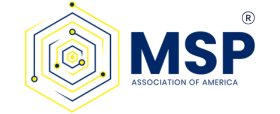Safeguarding Medical PII: Cyber Protections for Industry Leaders
Author: Steffie Bell
In today’s digital age, the healthcare industry has undergone a transformation, incorporating advanced technologies to streamline processes and improve patient care. While this evolution has brought numerous benefits, it has also exposed a critical concern: the security of Medical Personally Identifiable Information (PII). Healthcare industry leaders must prioritize robust cybersecurity measures to safeguard sensitive patient data and maintain public trust. This blog delves into the importance of protecting Medical PII and provides valuable insights for industry leaders to fortify their cyber defenses.
Understanding Medical PII
Medical Personally Identifiable Information (PII) refers to any information that can be used to identify an individual in the context of healthcare. This includes not only standard PII like names, addresses, and contact details but also highly sensitive medical records, treatment histories, diagnoses, insurance details, and more. The aggregation of such data creates a comprehensive profile of an individual’s health, making it extremely valuable to cybercriminals.
The Growing Threat Landscape
The healthcare sector has increasingly become a prime target for cyberattacks due to the high value of medical PII on the black market. Cybercriminals deploy a range of tactics, such as phishing, ransomware, and data breaches, to exploit vulnerabilities in healthcare organizations’ systems. The consequences of these attacks are profound, including compromised patient privacy, financial loss, reputational damage, and even potential legal implications.

Key Cyber Protections for Industry Leaders
Advanced Threat Detection and Prevention: Implement cutting-edge cybersecurity solutions that employ AI and machine learning to detect and prevent sophisticated attacks in real time. Regularly update and test these systems to ensure their effectiveness against emerging threats.
Data Encryption: Encrypt all medical PII both at rest and in transit. This ensures that even if a breach occurs, the stolen data remains unreadable and unusable by unauthorized parties.
Access Control and Authentication: Enforce strong access controls and authentication protocols to limit access to sensitive data. Multi-factor authentication (MFA) should be implemented for all users, including employees, contractors, and third-party vendors.
Employee Training and Awareness: Conduct regular training sessions to educate staff about cybersecurity best practices, the risks of phishing, and the importance of data protection. An informed workforce can serve as a formidable first line of defense.
Incident Response Plan: Develop a comprehensive incident response plan that outlines the steps to take in the event of a cyber incident. Regularly test and update this plan to ensure its effectiveness and efficiency.
Vendor Risk Management: Evaluate the cybersecurity measures of third-party vendors and partners who have access to your medical PII. Ensure that they adhere to similar security standards to prevent potential breaches through interconnected systems.
Regular Audits and Assessments: Conduct frequent security audits and risk assessments to identify vulnerabilities and weaknesses in your systems. Address any issues promptly to minimize the risk of breaches.
Regulatory Compliance: Stay updated with the latest healthcare and data protection regulations, such as the Health Insurance Portability and Accountability Act (HIPAA) in the United States. Ensure full compliance to avoid legal repercussions.
Conclusion
Protecting medical Personally Identifiable Information is not only a legal and ethical responsibility but also a necessity to maintain patient trust and the reputation of healthcare organizations. Industry leaders must take proactive steps to bolster their cyber defenses, embracing a holistic approach that encompasses advanced technologies, employee training, and robust policies. By prioritizing the safeguarding of Medical PII, healthcare leaders can contribute to a safer and more secure digital healthcare landscape.

